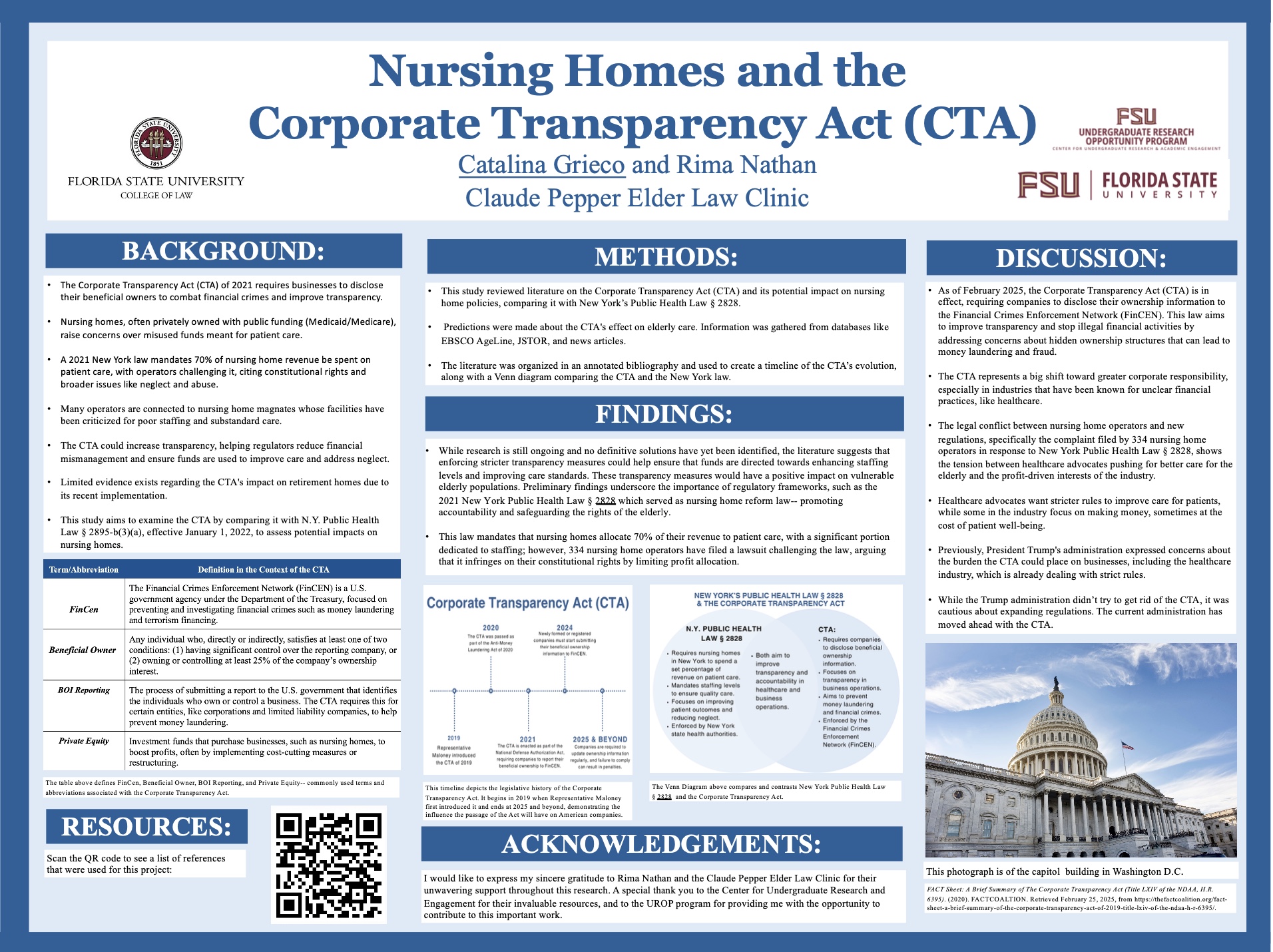Research Symposium
25th annual Undergraduate Research Symposium, April 1, 2025
Catalina Grieco Poster Session 3: 1:45 pm - 2:45 pm/ Poster #68

BIO
Catalina Grieco is a freshman from Sarasota, Florida, with a strong passion for justice and civic engagement. She aspires to attend law school and pursue a successful career in law. Her current internship with the Florida Legislative Session combined with the guidance of her research mentor, Rima Nathan, has provided her hands-on experience in the legislative process and the legal field. In addition to her internship, Catalina is an active member of her university's Student Government Association (SGA), where she serves as a senator, a member of the Freshman Class Council, and participates in various institutes. These roles have helped her develop key leadership, public speaking, and policy-making skills, all of which are essential for her future legal career. With past internships in the United States Senate, Congressional offices, and the Florida Legislative Session, she has already gained valuable experience in politics and law.
Nursing Homes and the Corporate Transparency Act (CTA)
Authors: Catalina Grieco, Rima NathanStudent Major: Political Science & Public Relations
Mentor: Rima Nathan
Mentor's Department: Claude Pepper Elder Law Clinic Mentor's College: Florida State University College of Law Co-Presenters:
Abstract
This research reviews the Corporate Transparency Act (CTA), the AARP’s advocacy for elderly rights, and care standards in retirement homes, focusing on how the CTA can improve these standards. Many long-term care facilities have corporate structures that shield companies from liability. The CTA could increase transparency, ensuring companies comply with regulations and are not unjustly protected from accountability. The study highlights New York’s 2021 nursing home reform law, which requires nursing homes to allocate 70% of revenue to patient care, including staffing. However, 334 operators filed a lawsuit, claiming the law infringes on their constitutional rights by seizing profits, reflecting a clash between healthcare advocates and profit-driven industries.
The research examines how the CTA’s corporate disclosure requirements could address financial practices that prioritize profits over patient care. It also looks at the misuse of government funding in the nursing home sector, often linked to underfunded staffing and poor care. The findings suggest that stricter transparency through the CTA could direct more funds toward improving staffing and care, benefiting vulnerable elderly populations. This study underscores the importance of regulatory measures, like the CTA, in promoting accountability within the nursing home industry and safeguarding elderly rights.
Keywords: Law, Human Rights, Health care

